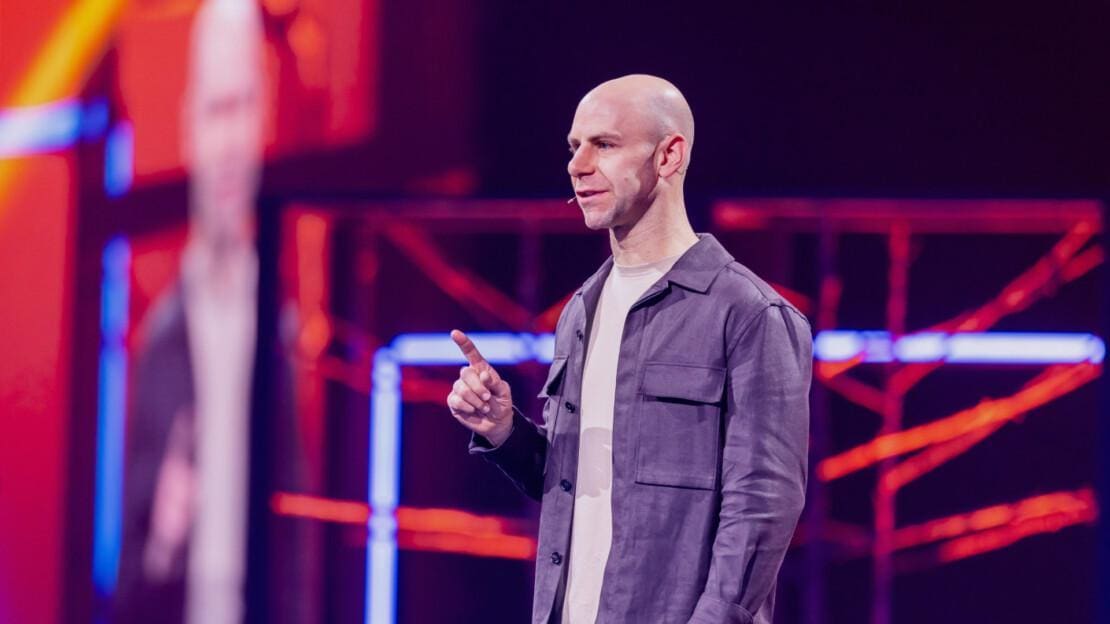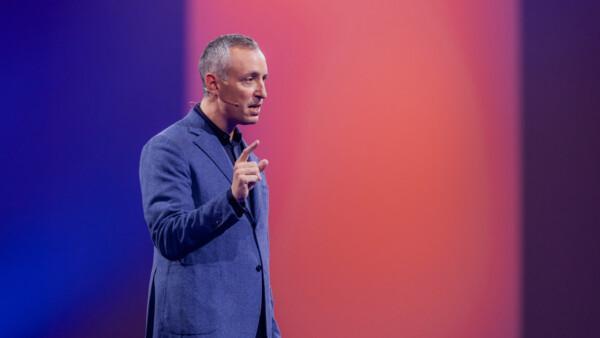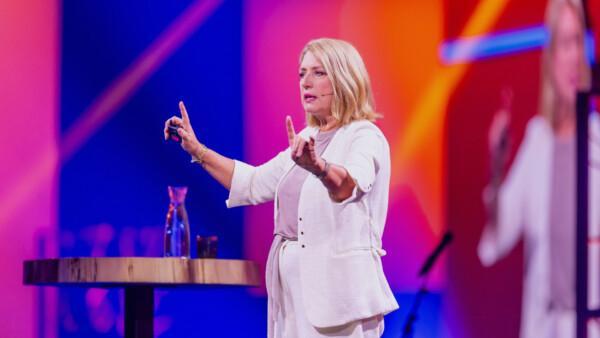1Oct2024
Adam Grant, an organizational psychologist, bestselling author, and professor at the Wharton School of the University of Pennsylvania, delivered an engaging keynote at the Nordic Business Forum 2024. Through personal anecdotes, research-backed insights, and practical advice on how to foster growth in ourselves and others, he talked about unlocking hidden potential, embracing vulnerability, and fostering a culture of generosity in the workplace.
Putting Growth over Ego
Adam opened his talk with a humorous reflection on his own journey, describing a time when he attempted to teach leadership to generals and colonels in the U.S. Air Force at just 25 years old. The feedback from his first session was brutal, leaving him devastated. However, instead of succumbing to discouragement, he decided to reframe the criticism, embracing what he called the “second score” — the idea that while the initial critique may be harsh, how you respond and grow from it is what truly matters.
He explained this concept through his own experience, noting, “The best way to prove myself is to show that I’m willing to improve myself.” By seeking advice instead of feedback, he turned his critics into coaches and eventually transformed a dismal teaching experience into a successful one.
Asking for Advice, Not Feedback
Adam made a distinction between asking for advice versus feedback. He noted that feedback often focuses on the past and may not be actionable. In contrast, asking for advice prompts more specific, forward-looking guidance. This simple shift in how we seek input from others can lead to more productive and supportive conversations.
Adam shared a personal anecdote to illustrate this point. After the disastrous first session with Air Force leaders, he asked his critics for advice and was told to call out the elephant in the room, the fact that he looked young and inexperienced to seasoned and middle aged military leaders. So, he opened his second session by humorously saying: “I know what you all are thinking right now. What could I possibly learn from a professor who’s 12 years old?” This disarming approach not only broke the ice but also shifted the tone of the session, showing that vulnerability can foster connection and trust.
Vulnerability and Confident Humility
One of the key themes of Adam’s speech was the importance of vulnerability in leadership. He highlighted that acknowledging weaknesses can be a sign of strength, not a liability. Leaders, he argued, should have “confident humility” — the ability to recognize their strengths while being open about areas for growth.
“There are things that I’m capable of being great at, and in order to get there, I need to acknowledge what I’m bad at so I can close the gap.”
Adam’s experiment at the Gates Foundation illustrated this point well. By encouraging leaders to openly engage with criticism, he found that employees were more willing to offer constructive feedback, leading to stronger growth mindsets across the organization.
Fostering a Culture of Generosity
Adam also emphasized the importance of cultivating a culture of generosity within organizations. He drew on his research about “givers” and “takers,” explaining that givers — those who help others without expecting anything in return — not only contribute more to organizations but also grow more themselves. This is because givers engage in tasks outside of their core responsibilities, which helps them acquire new knowledge and skills.
To foster this kind of environment, Adam recommended exercises like the “reciprocity ring,” where individuals ask for help and others offer their support. This practice encourages both giving and receiving help, which Adam believes is essential for unlocking the hidden potential within teams.
Thinking Like a Scientist
One of the final points Adam made was about the importance of adopting a scientific mindset, particularly for leaders. He encouraged the audience to think of every decision as an experiment, where opinions are hypotheses that should be tested rather than assumed to be correct. He shared a study of European entrepreneurs that found those who embraced a scientific approach to decision-making saw 40 times more revenue growth than those who didn’t.
“Good scientists have the humility to know what they don’t know and the curiosity to seek new knowledge. They’re as motivated to look for reasons why they might be wrong as they are to search for reasons why they must be right.”
This mindset, Adam argued, fosters agility and openness to change — both critical traits in a rapidly evolving world where businesses need to adapt quickly.
Key Points
- The second score: How we respond to criticism matters more than the critique itself. By viewing unfavorable comments as an opportunity for growth, we can improve our performance.
- Confident humility: Leaders who admit their weaknesses build trust and foster a more open and innovative environment.
- Ask for advice, not feedback: Shifting from asking for feedback to asking for advice results in more actionable, forward-looking insights.
- Generosity unlocks growth: A culture of giving not only benefits the organization but also helps individuals grow by exposing them to new challenges and opportunities.
- Think like a scientist: Leaders should treat decisions as hypotheses to be tested, which encourages agility and adaptability in rapidly changing environments.
Questions for Reflection
- How can you embrace vulnerability in your leadership and create a culture where others feel comfortable doing the same?
- In what ways can you shift from asking for feedback to seeking advice in your personal and professional life?
- What practices can you implement to foster a culture of generosity within your organization?
- How can you apply the scientific mindset to your decision-making process, treating each choice as a hypothesis to be tested?
- How can leaders balance the need for humility with the confidence required to lead effectively?


